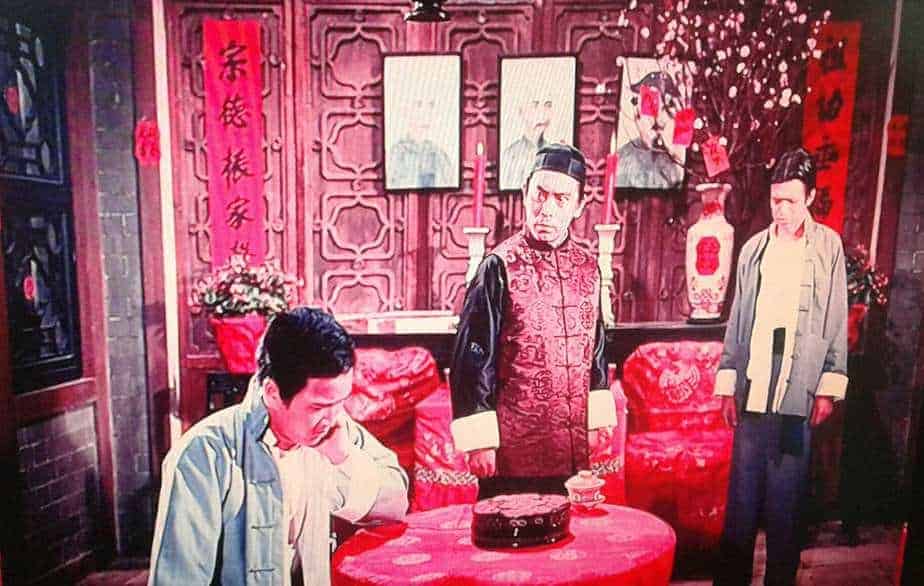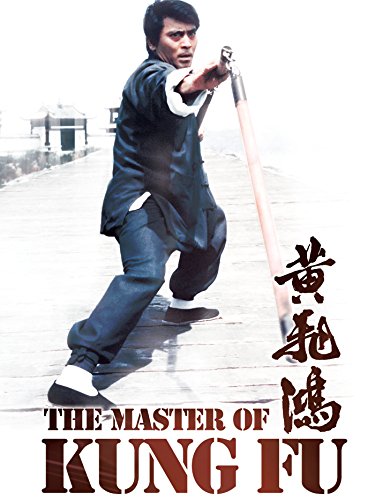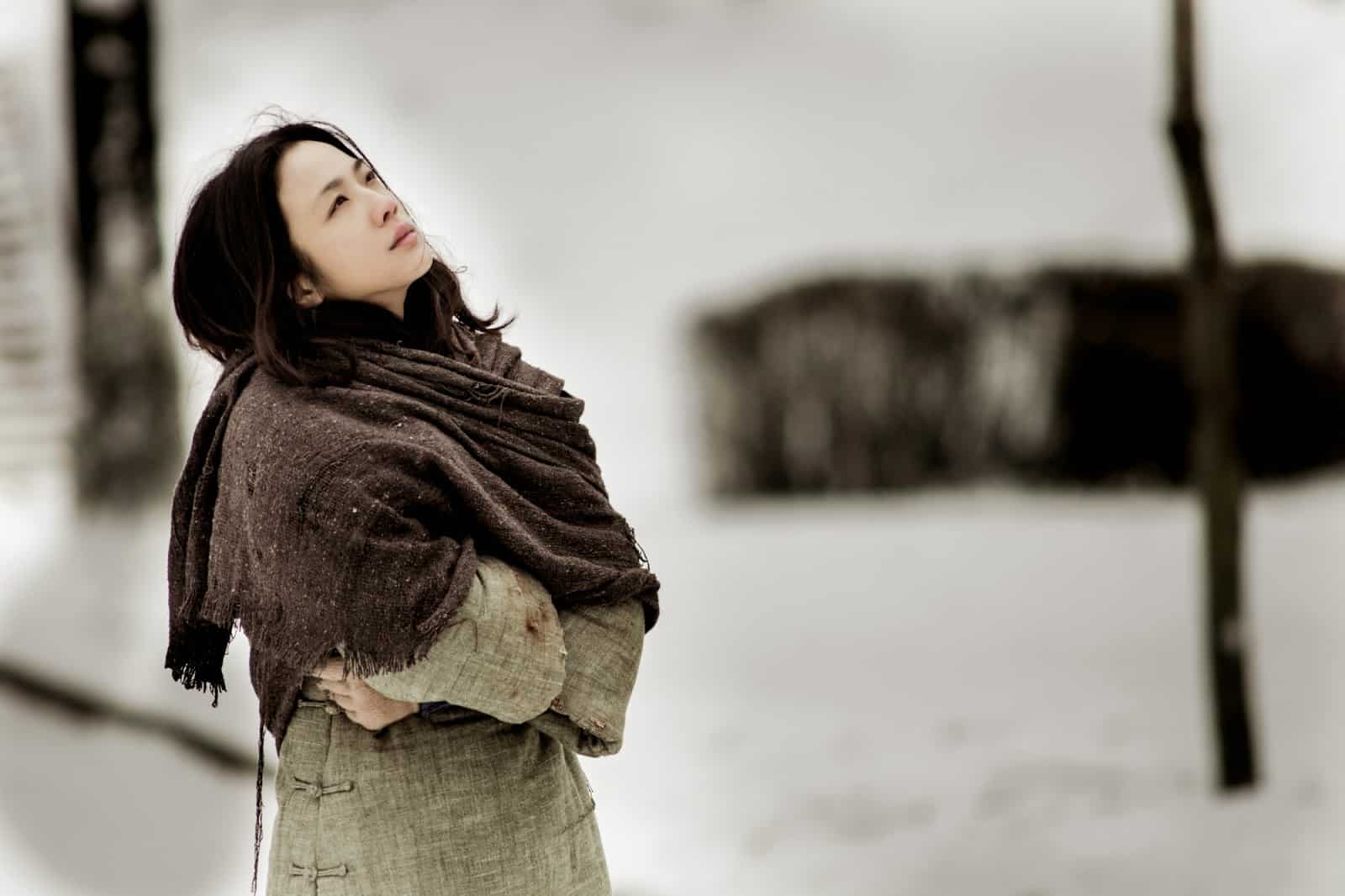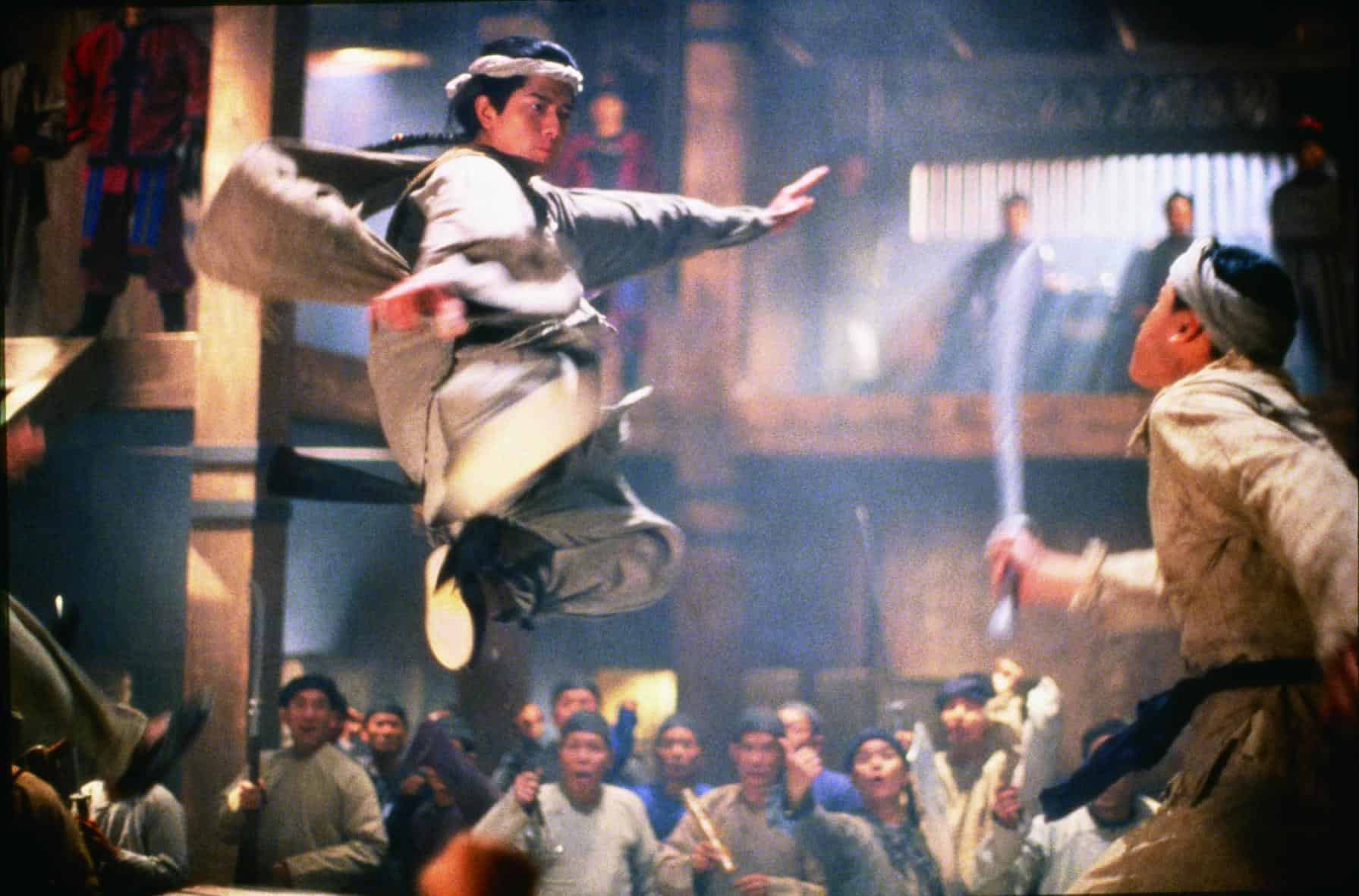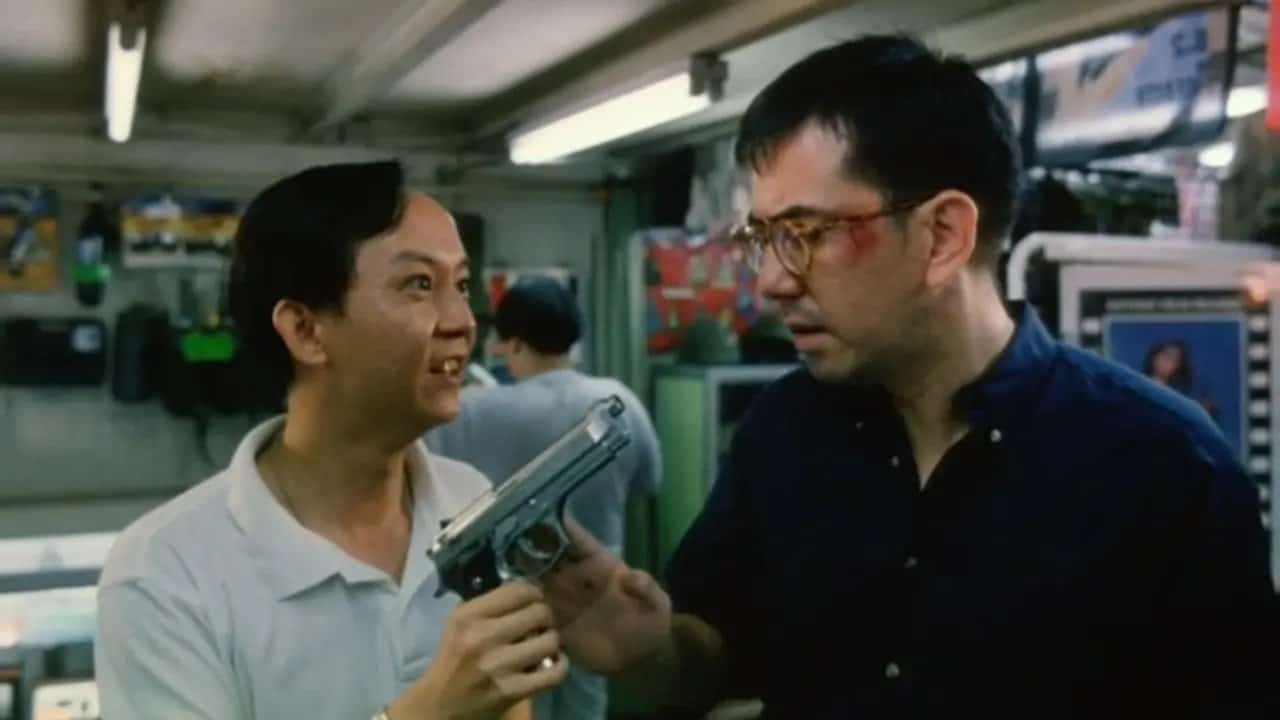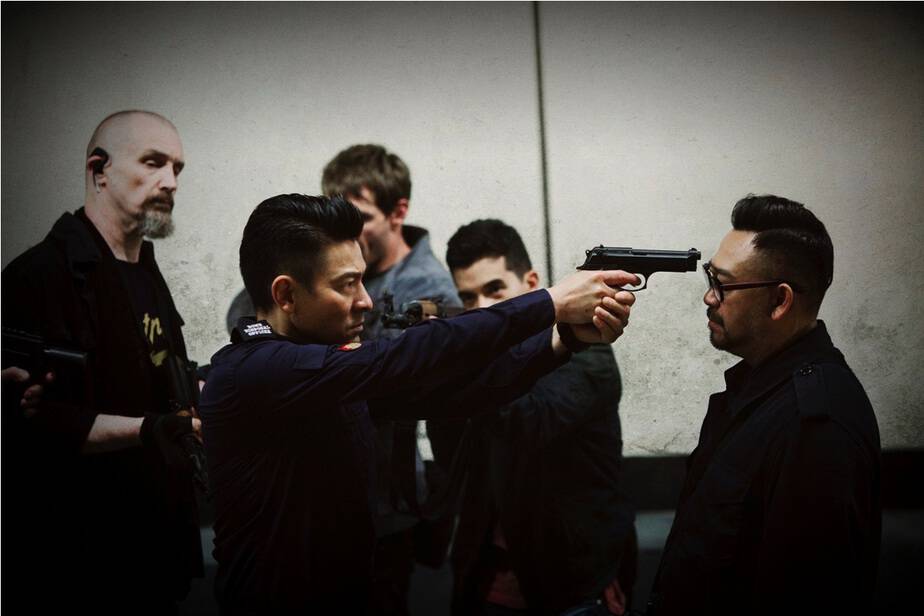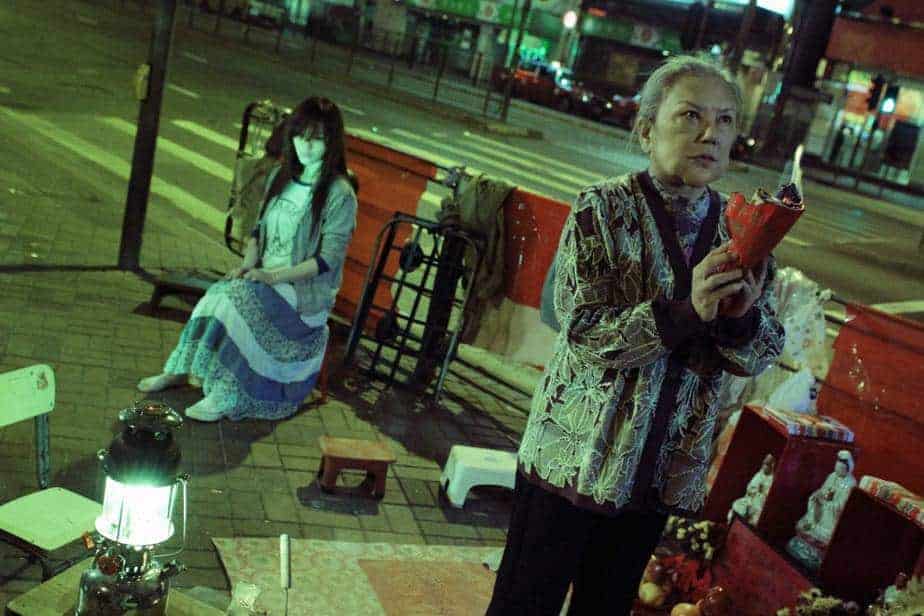The first thing you associate with any Wong Fei-hung feature is the theme song “General marching under orders”. It's practically an unwritten law it will feature at some point in the story. Except from the time the final credits roll in “The Master of Kung Fu” it hasn't appeared once. That tells you that either this is going to be a different take on the character or it's done for a reason!
Watch This Film
Opening with a lion dance, several of the Po Chi Lam school end up in a confrontation by students of Mai Ken (Shen Chan). Wong Fei-hung (Ku Feng) as their teacher agrees to apologize, much to the confusion of his disciples. They learn he accidentally killed his brother using his famous “No Shadow Kick” 10 years earlier and So refuses to use it again. Fox (Hon Wong) plots to have Li Tien-tao (Hsieh Wang) named head of security as they seek to rob the westerner Gordon. Li-Tien-tao beats Mai Ken to the brink of death in the resulting tournament and is only prevented from killing him by the intervention of Wong Fei-hung. Wong is then framed by the villains who plan poison in medicine meant for Mai Ken. As the plotting sees Po Chi Lam's students slain in retribution and other masters framed too, only Wong Fei-hung can take revenge and clear his name.
“The Master of Kung Fu” fits into an interesting era as part of the Wong Fei-hung cannon. Kwan Tak-hing was the actor at the time most associated with the role, appearing in numerous productions in the 1950's and 60's and a few years later would appear in three more Golden Harvest ones, as an almost swan song to his defining part. A beardless Ku Feng brings some of the gravitas to his take and is a more stern middle aged presence compared to the more youthful adaptations we would see featuring Gordon Liu, Jackie Chan and Jet Lee. We see his medical skills more than martial arts for the first two thirds. This Wong Fei-hung seeks to avoid confrontation and the famous “No Shadow Kick” is kept under wraps due to a tragedy in his earlier life.
This reluctance to engage makes the character more rounded. He concedes defeat in a contest with Mai Ken rather than continue a fight we can clearly see he can win. In a fight towards the end with Li Tien-tao there is a moment where it appears he is going to lose control and the camera zooms into his eyes full of rage. It's a moment we very rarely see in Wong Fei-hung films, a sense of danger. So often the character is controlled in movement and thought that he can descend into being caricature. These little moments humanize the legend and it is to Ku Feng's credit that he is able to put his own spin on it.
The character of Gordon is something we will see explored in more depth in later works, that of the corrupt western influence exploiting the weakness of the Chinese for financial gain. Whilst Fox is the arch manipulator (played with suitable smarm by Hon Wong) and seeks to use Gordon for his own gain, there is no redeeming attributes for his western Mark.
Ho Meng-hua had an eclectic career at Shaw Brothers. His later work would be in horror and the ultimate exploitation martial arts film in “The Vengeful Beauty”. This is a more restrained work by his standards with little of the manic bloodshed that we would later see. The crash zooms that were a staple feature in the genre are effective as they make the most of Ku Feng's expression. Purists may criticize the style of martial arts, but the action scenes are solidly done and keeping the signature “No Shadow Kick” out of it until the cathartic finale works well.
The narrative is standard fare; you could easily replace the Wong Fei-hung character with a generic character and not change the dynamic too much. The usual supporting cast that we expect is sidelined mostly, but this is Ku Feng's movie. A really enjoyable 94 minutes that whilst is mostly standard martial arts cliche, does allow for a bit more thought than the regular potboiler.


